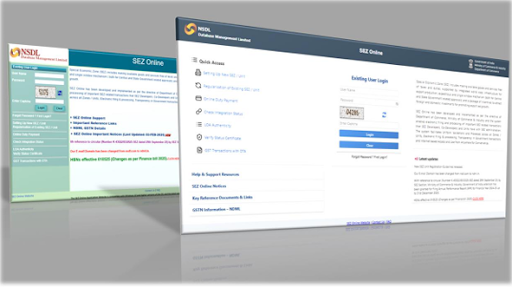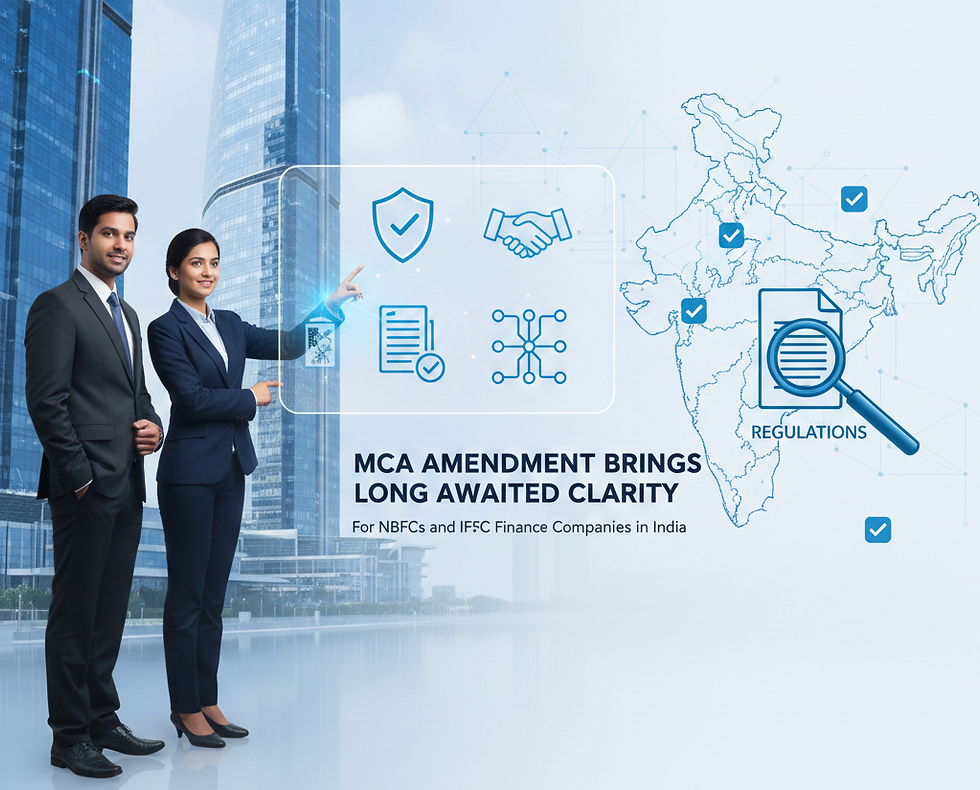🎓 Foreign University Setup in GIFT City: Top FAQs on IBC & OEC Regulations (2025 Guide)
- GIFT CFO
- Jul 17
- 3 min read
Updated: Jul 24
🌐 Introduction: Bringing Global Education to India’s Financial Hub
The International Financial Services Centers Authority (IFSCA) now allows foreign universities and educational institutions to establish International Branch Campuses (IBCs) or Offshore Education Centers (OECs) within India’s flagship financial zone — GIFT City IFSC.
These regulations aim to attract world-class institutions to deliver high-quality academic programs and research in India while preserving global standards.
This blog answers key FAQs (updated for 2025) to help you navigate eligibility, compliance, fees, and the registration process.

❓ Q1. What is the purpose of the IBC/OEC regulations?
The IFSCA (IBC and OEC) Regulations, 2022 were created to:
Allow reputed foreign universities and institutions to operate from GIFT City
Deliver globally recognized education and research in finance, fintech, STEM, and related fields
Expand India’s academic offerings for global and Indian students
🌍 Q2. Who can set up an IBC or OEC in GIFT City?
Only foreign universities and educational institutions meeting specific eligibility criteria can apply.
🏆 Q3. What are the eligibility requirements?
For Foreign Universities:
Must be ranked in the Top 500 QS World Rankings, either:
Overall global ranking, or
Subject-wise ranking
For Foreign Educational Institutions:
Must be officially recognized in their home country as a reputable education provider.
🎓 Q4. What courses can be offered?
Courses can focus on:
Financial Management
FinTech
Science
Technology
Engineering
Mathematics (STEM)
Academic degrees and research programs must be aligned with the curriculum and standards of the parent institution.
📝 Q5. What’s the process to apply?
Applicants must:
Submit a board resolution approving the setup
Provide:
Infrastructure plan
Faculty details
Academic roadmap
Quality audit report
Funding plan
Proof that degrees issued in GIFT City are recognized in the home country
📤 Send application to IFSCA, which is reviewed by a Committee of Experts.
⏳ Q6. What’s the registration timeline?
In-principle approval is granted for 180 days
Institution must:
Build infrastructure
Hire faculty
Final registration is issued upon compliance
📅 Q7. How long is the registration valid?
Initial validity: 5 years
Renewable for additional 5-year terms
💰 Q8. What are the applicable fees?
Fee Type | Amount (in USD) |
Application Fee (one-time) | $1,000 |
Initial Registration Fee | $25,000 |
Annual Fee (from 2nd year) | $10,000/year |
Fee for Relaxation Requests | $10,000 |
📚 Q9. Can the curriculum be customized?
Yes, but:
Changes must mirror the parent institution’s updates
Must be approved by the parent’s Academic Council
Must be notified to IFSCA before implementation
👨🎓 Q10. What protections are there for students?
Institutions cannot suspend or cancel courses without IFSCA approval.
If a course is discontinued, the parent institution must offer alternatives to impacted students.
💱 Q11. In what currency are transactions done?
All transactions must be in freely convertible foreign currency
Admin expenses in India can be paid via an SNRR (Special Non-Resident Rupee) Account
🏦 Q12. Can profits be repatriated?
Yes. Parent entities can freely repatriate profits to their home country.
🚨 Q13. What happens in case of non-compliance?
IFSCA may:
Suspend or cancel the registration
Impose penalties
Deny renewal
📌 IFSCA also conducts inspections and compliance audits regularly.
📈 Q14. What are the reporting obligations?
IBCs/OECs must maintain:
Financial records in declared foreign currency
Annual Reports with:
Admissions
Courses offered
Tuition received
Degrees awarded
Profits repatriated
📣 Q15. Can IBCs/OECs promote courses outside GIFT City?
No. They cannot act as representative offices or market courses outside GIFT IFSC.
⚖️ Q16. Can IFSCA grant exemptions?
Yes — IFSCA has discretionary powers to relax or clarify rules if justified.
📌 Conclusion: GIFT City Offers a Global Platform for International Education
The IFSCA’s IBC/OEC regulations offer a unique opportunity for world-class universities and institutions to serve Indian and global students from a globally competitive zone — with full repatriation rights, regulatory clarity, and modern infrastructure.
📩 Need support with IFSCA registration, compliance, or legal structuring? Reach out to GIFT CFO — your advisory partner for GIFT City education setups and international business services.


























































































Comments